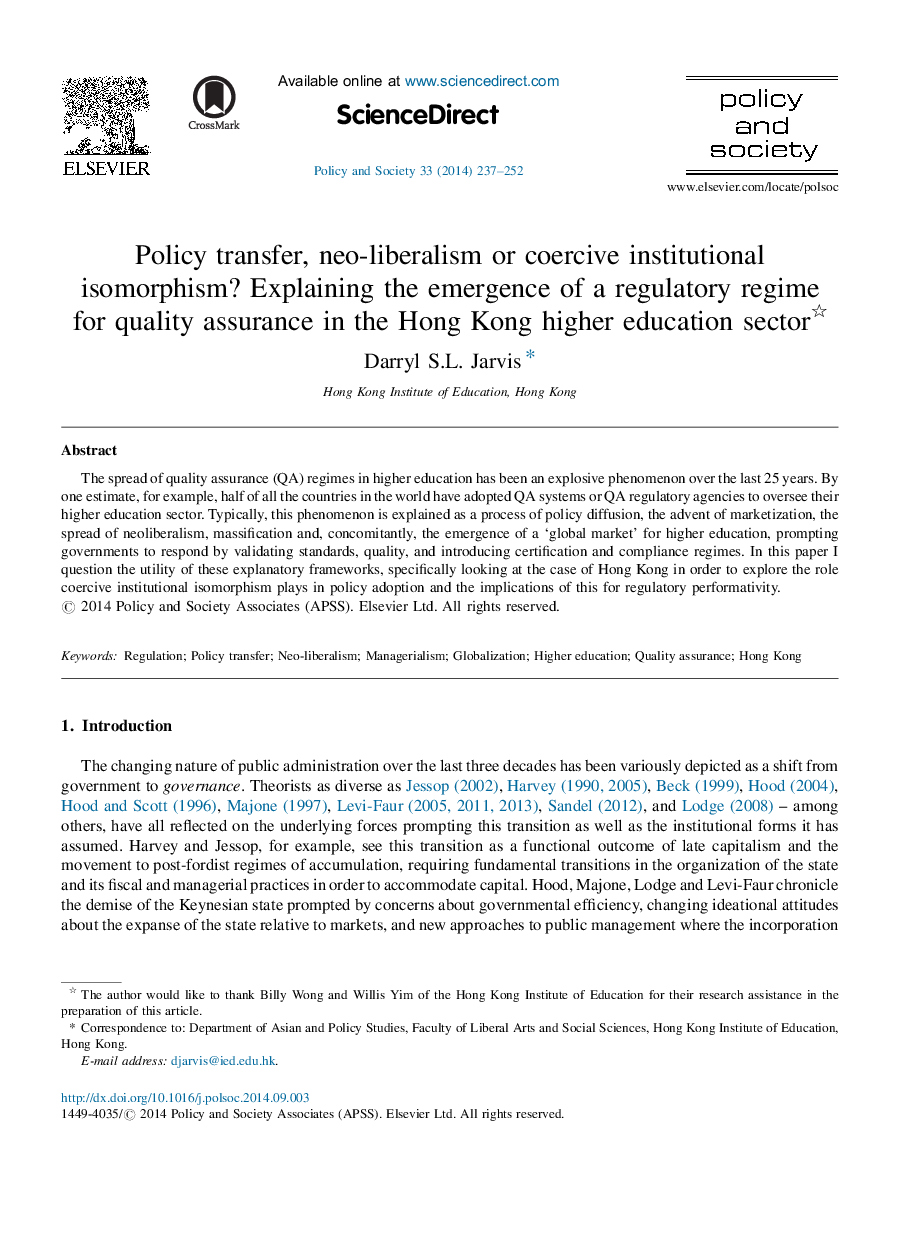| Article ID | Journal | Published Year | Pages | File Type |
|---|---|---|---|---|
| 1061457 | Policy and Society | 2014 | 16 Pages |
The spread of quality assurance (QA) regimes in higher education has been an explosive phenomenon over the last 25 years. By one estimate, for example, half of all the countries in the world have adopted QA systems or QA regulatory agencies to oversee their higher education sector. Typically, this phenomenon is explained as a process of policy diffusion, the advent of marketization, the spread of neoliberalism, massification and, concomitantly, the emergence of a ‘global market’ for higher education, prompting governments to respond by validating standards, quality, and introducing certification and compliance regimes. In this paper I question the utility of these explanatory frameworks, specifically looking at the case of Hong Kong in order to explore the role coercive institutional isomorphism plays in policy adoption and the implications of this for regulatory performativity.
